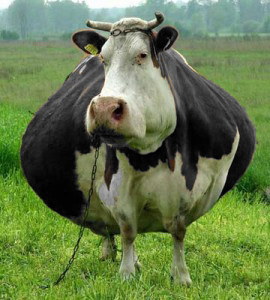In my work at the Bassetti Foundation I have written extensively about food, its production and how technology has entered and continues to encroach on everyday provisioning.
I wrote an article about how milk from cloned cows entered the food chain last year, and then how some cloned cows went missing in Scotland, probably ending up at the butcher’s shop and on to somebody’s table, but this week I let you in to a story that goes much further.
Scientists in Holland have managed to grow meat from stem cells and later this year aim to have enough to make a hamburger. I don’t know if they plan to eat it though, it will cost about $300 000 to produce. Although this sounds abhorrent as well as quite expensive, they have good reason to try it. Many experts believe that current food provisioning techniques are non sustainable. As the population grows more people require more food, but leave less land to use in its production, and this presents one problem. The second issue is that large scale meat production is one of the biggest carbon producing industries on the planet.
Meat production is also physically very damaging for the environment, there have been many articles written about beef production in Argentina and Brazil causing problems for the rainforests. Meat production is also inefficient. In order to produce meat (for example beef again) you need to feed up a cow, and cows eat a lot. The protein gained from the cow is equal to 15% of the protein it eats, so you have to feed a herd of cows 100 tons of protein for every 15 tons produced.
So could this new type of production help feed the planet? It will certainly have to overcome a few hurdles, production price will have to come down obviously and I imagine protests and general dislike of the idea, but OGM is everywhere nowadays (unmarked in the US I believe) and you can get used to anything if you try. The point is that it can be done, the technology exists and once done on mass it will be done cheaply.
If you are interested in learning more take a look at the article on the BBC website, my interview with Prof Andrew McMeekin of the University of Manchester Business School on the subject of food provisioning and my other meanderings on the Bassetti Foundation website.
